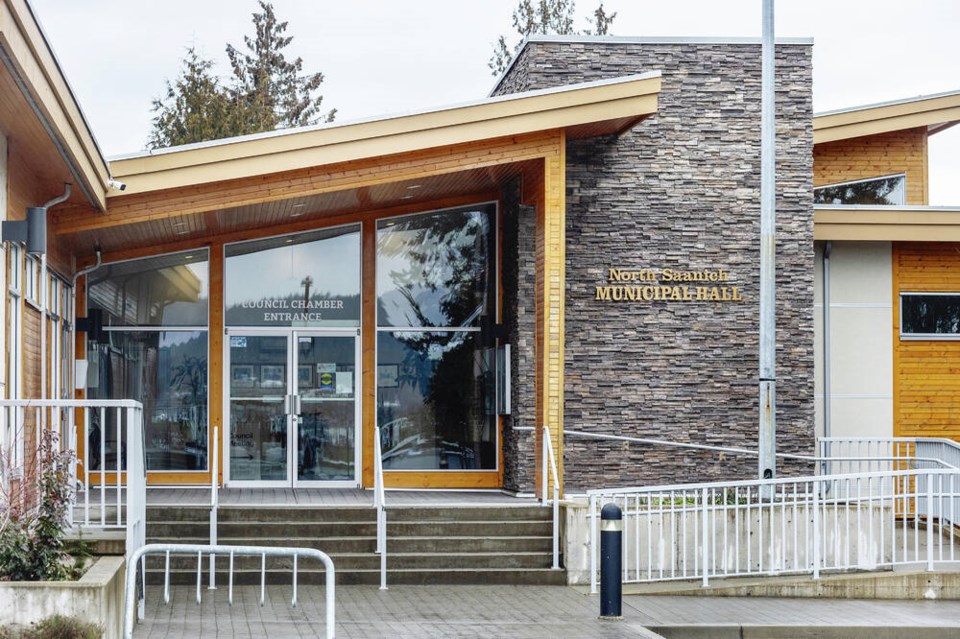A council meeting in the small Island community of Tahsis descends into chaos, with members of the public in a yelling match with Deputy Mayor Sarah Fowler, and a councillor grabbing a gavel from the deputy mayor’s hand.
In North Saanich, Mayor Peter Jones shuts down questions from councillors concerned about the advisory committee on the district’s official community plan, prompting one councillor to refer to Jones as “Mr. Hitler.” The councillor later resigned.
In the Lower Mainland, council meetings in Lions Bay and Harrison Hot Springs are marked by acrimony, to the point where the province looks at hiring an adviser to sort out their differences.
Jen Ford, president of the Union of B.C. Municipalities, said the UBCM has been hearing from local governments across the province that are struggling with conduct problems and calling for resources.
While each community differs, Ford said one dominant theme with recent council strife is that some council members believe they represent only those who voted for them. Those mayors and councillors, she said, are missing the point that “when we’re elected, we’re elected to represent all members of our community.”
It’s important that councils work out conduct problems professionally so they don’t erode community members’ trust in the institution of local government, Ford said. “When these things get out of hand, they take us away from the business that our communities have elected us to do.”
In response to municipal requests, a Working Group on Responsible Conduct was formed, with members from UBCM, the province and the Local Government Management Association.
The group provides training and education for recently elected municipal politicians on how to conduct themselves and focus on the work of local government, “and to not distract from the work with these personal issues coming to the council table,” Ford said.
Training includes a short online course that involves making decisions based on real-life scenarios, a guide to help local governments deal with conduct issues and a database of external resources providing coaching and guidance.
“This is a serious issue that local elected officials really need to take seriously, to hold themselves to a code of conduct, and to hold other members of council to understand the rules of engagement and to work well together,” Ford said.
Kim Speers, an assistant teaching professor in the University of Victoria’s school of public administration, said while there have always been clashes around the council table, the pandemic years have further polarized society and eroded the middle ground where people used to find consensus.
Former U.S. president Donald Trump’s tumultuous presidency “didn’t do any favours” for the public looking for ways to deal with issues and anger, and overall trust in government has plummeted, she said.
Speers said elected representatives and the public alike sometimes lack understanding of how to manage a government. With no experience in the public sector, some elected leaders try to run a government like a private business, she said.
“It generally doesn’t work very well.”
The motive to run for office has changed in some cases, with people sometimes campaigning on a single issue that’s important to them.
Speers said courses and training on responsible conduct offered to councillors are great, but it might be time to consider making them mandatory. A pre-election orientation for all interested candidates could also help increase understanding of what it means to run a government.
David Black, a communication theorist and historian at Royal Roads University, argues councils are facing unprecedented demands in areas such as housing, homelessness, social order and policing, mental health, chronic offenders and public health.
Those issues come with greater complexity and urgency, and more public attention — and sometimes outrage — than has been seen historically, he said.
“For many councils, these impose stresses that citizen legislators and city staff were not prepared for, and have led to renewed public attention and often, anger and vitriol, at this more accessible level of government.”
Combined with a council system that depends on good will and collaboration among council members, along with effective relations with staff, those pressures have “not surprisingly, yielded more conflict and conduct issues.”
While at provincial and federal levels, politicians undergo a degree of apprenticeship, professionalism and vetting by political parties, council members are “citizen legislators,” Black said.
“That means that ordinary people, with a naturally varying level of competence, integrity and interest, can find themselves elected to council and making decisions that can materially affect their communities.”
Most councillors act independently and aren’t subject to party discipline, which makes councils responsive and democratic, but also makes them subject to the personalities and internal dynamics of mayor and councillors, he said.
Under provincial legislation, municipalities have a lot of autonomy from the province, which leaves them largely alone to sort out dysfunction and conflicts, said Black, adding it might be time for the province to review governance, funding, and the relationship between the province and local government in a more formal, explicit fashion.
Michael Prince, UVic political science professor, said some of the council turmoil can be attributed to the lingering impacts of COVID, and the awkward readjustment to interacting in person after three years or meeting virtually.
On top of that, the 2022 municipal elections saw huge turnovers in some communities. Many new people were elected with limited experience in council roles, said Prince, who speculates that explosions among council members could be a symptom of “recovering pains as we come out from the COVID period.”
Prince also suggests we are living in a scrappier age. “There’s very few people giving the benefit of the doubt to the public office holders. Not as much deference as, say, our grandparents gave to people in positions of authority.”
As citizens watch conflicts break out at city halls, Prince said all we have to do is look south of our border to see how fragile democracy is.
>>> To comment on this article, write a letter to the editor: [email protected]



